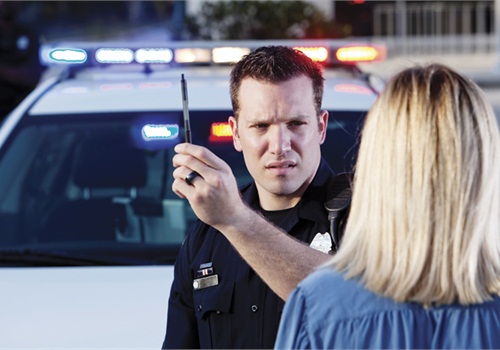Now Reading: US Supreme Court: Police Need A Warrant For DUI Blood Tests
-
01
US Supreme Court: Police Need A Warrant For DUI Blood Tests
US Supreme Court: Police Need A Warrant For DUI Blood Tests

In June, the US Supreme Court finally clarifies the constitutional limits of officers who try to measure blood alcohol levels following a DUI arrest.
In this fragmented ruling which needed a five-justice majority, the court declared that police officers must obtain a warrant in order to conduct a blood alcohol test. However, breathalyzer tests under similar circumstances still won’t require a warrant. The ruling came alongside major rulings on affirmative action and immigration policy.

This latest DUI ruling came as a result of two appeals, one from Minnesota and two from North Dakota, all involving men who had been arrested on DUI charges and threatened with legal penalties if they didn’t agree to a blood alcohol test. All three of the men refused, but were tested anyway, two by blood and one by breathalyzer, and found to be well over the legal limit. Due to their initial refusal, all three suspects were charged separately. The men then appealed the charges, arguing that criminalizing their refusal impeached their fourth amendment rights, which protects them from unwarranted search and seizure. They were turned away by their state supreme courts.
However, the federal Supreme Court agreed to the argument put forward with respect to blood tests. Justice Samuel Alito called the tests “significantly more intrusive” to privacy, and believed that states should have to obtain a warrant before conducting them. However, Alito went on to say that “The impact of breath tests on privacy is slight”, and upheld that police could use them under the fourth amendment. “Because breath tests are significantly less intrusive than blood tests and in most cases amply serve law enforcement interests, we conclude that a breath test, but not a blood test, may be administered as a search incident to a lawful arrest for drunk driving.” Alito wrote.
Justice Sonia Sotomayor, who mounted a strong dissent in the same area of DUI laws around the same time, wanted to go further than Alito and his faction, and require that officers have warrant for conducting breathalyzer tests. To Sotomayor, the impracticality of requiring officers to obtain a warrant did not justify doing away with the mandate, and saw it as a threat to the constitutional rights of citizens. “I fear that if the Court continues down this road, the Fourth Amendment’s warrant requirement will become nothing more than a suggestion,” she wrote, as part of her partial dissent which was joined by Justice Ruth Ginsburg.
DUIs are one of the most common traffic offences reported in the states, with many people turning to firms like Sohovich Law for DUI representation. It’s estimated that the average drunk driver will operate a car under the influence 80 times before ever being arrested, and that someone is killed in a drunk driving crash in the States every 51 minutes. Despite these worrying figures, DUI laws are still the subject of a lot of controversy. The reliability of field sobriety tests, and the legality of DUI checkpoints have both been called into question. Supreme Court rulings have almost always been fractured; a conflict between people’s safety and their constitutional rights.
Stay Informed With the Latest & Most Important News
Previous Post
Next Post
-
 01Polestar Boss Says It’s Time To Outrun BMW M And Mercedes-AMG
01Polestar Boss Says It’s Time To Outrun BMW M And Mercedes-AMG -
 02Spy Shots: 2027 Mitsubishi Pajero Spotted in Testing Ahead of Possible U.S. Return
02Spy Shots: 2027 Mitsubishi Pajero Spotted in Testing Ahead of Possible U.S. Return -
 032026 Toyota Hilux EV: A Powerful Truck with Silent Torque
032026 Toyota Hilux EV: A Powerful Truck with Silent Torque -
![2027 Mercedes-Benz S-Class Debuts with V8 Engine [Photo Gallery]](https://speedlux.com/wp-content/uploads/2026/01/2027-Mercedes-Benz-S-Class-33-155x125.jpg) 042027 Mercedes-Benz S-Class Debuts with V8 Engine [Photo Gallery]
042027 Mercedes-Benz S-Class Debuts with V8 Engine [Photo Gallery] -
 052026 Corvette ZR1 Production Surges Past Expectations as Output Clears 1,000 Units
052026 Corvette ZR1 Production Surges Past Expectations as Output Clears 1,000 Units -
 06Spy Photos: VW ID. Polo GTI Goes Electric with 223 HP and 280 Miles of Range
06Spy Photos: VW ID. Polo GTI Goes Electric with 223 HP and 280 Miles of Range -
 07The Controversial Ford Voodoo V8 That Was Killed Off Too Early
07The Controversial Ford Voodoo V8 That Was Killed Off Too Early



![2027 Mercedes-Benz S-Class Debuts with V8 Engine [Photo Gallery]](https://speedlux.com/wp-content/uploads/2026/01/2027-Mercedes-Benz-S-Class-33-700x394.jpg)








































